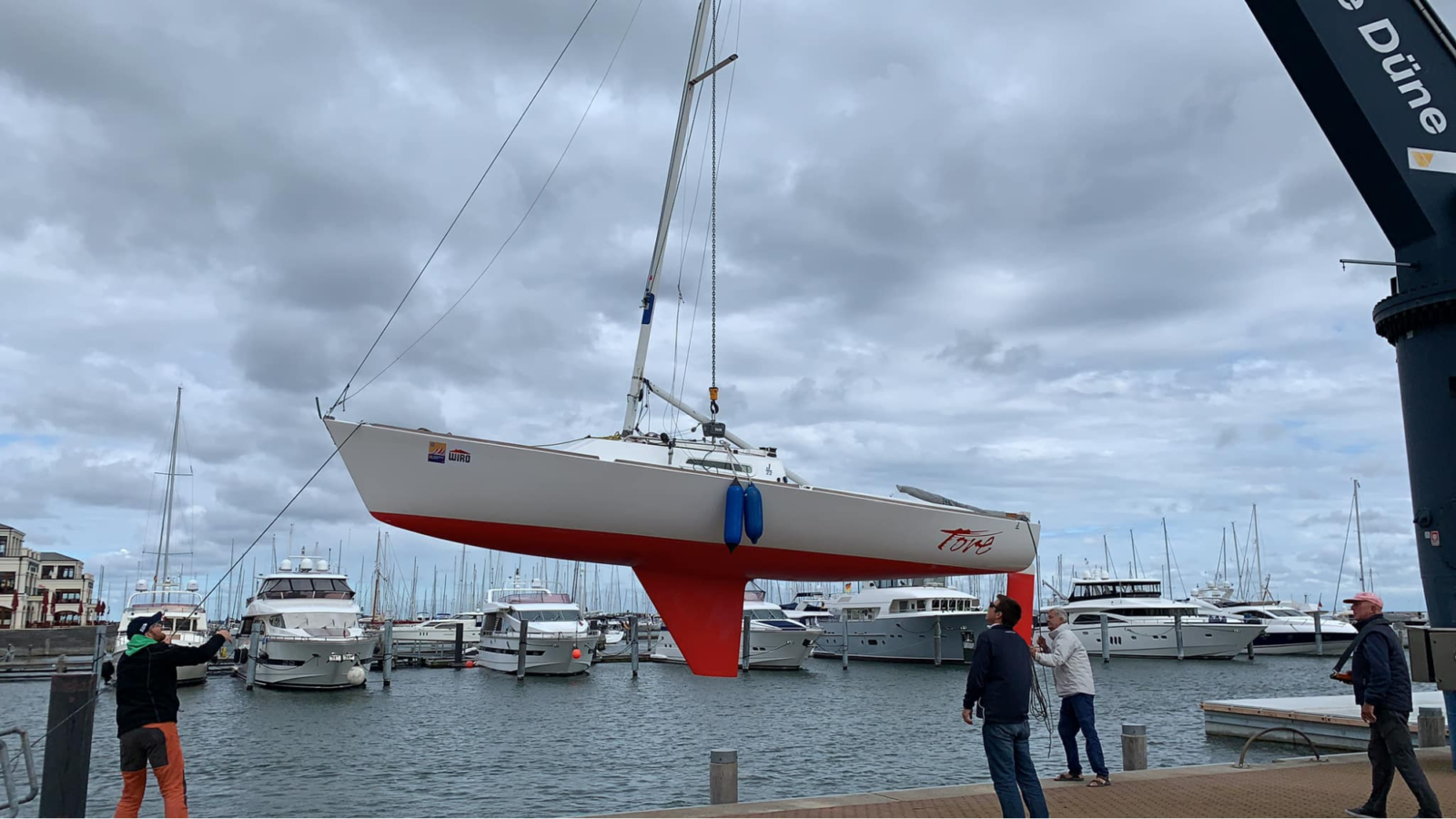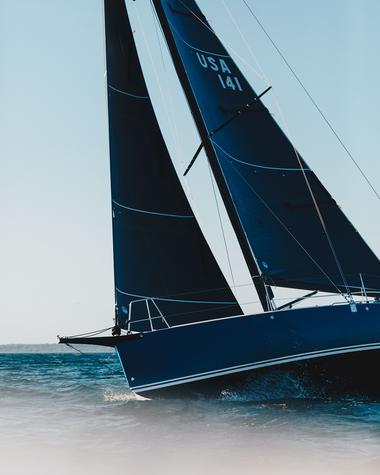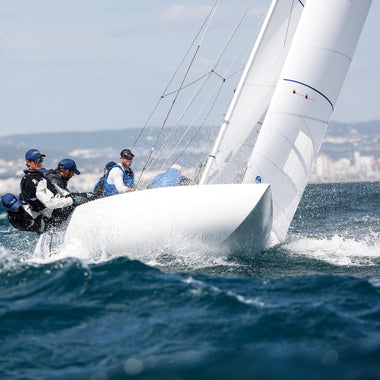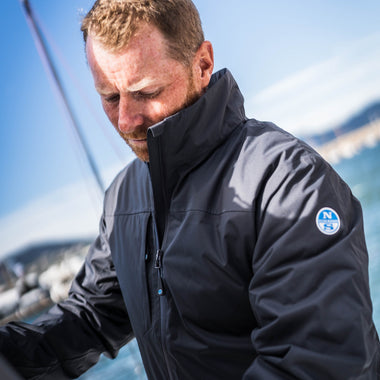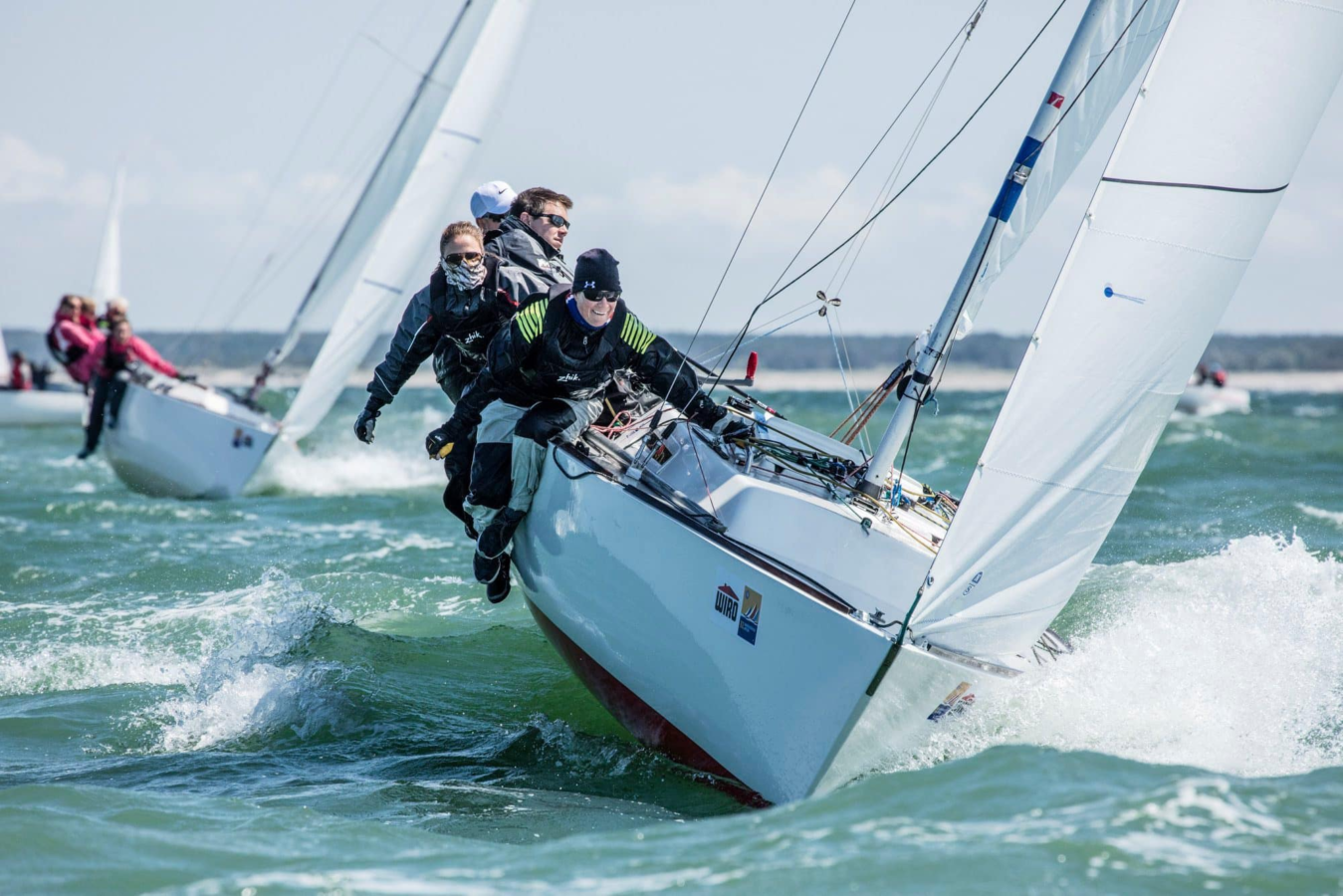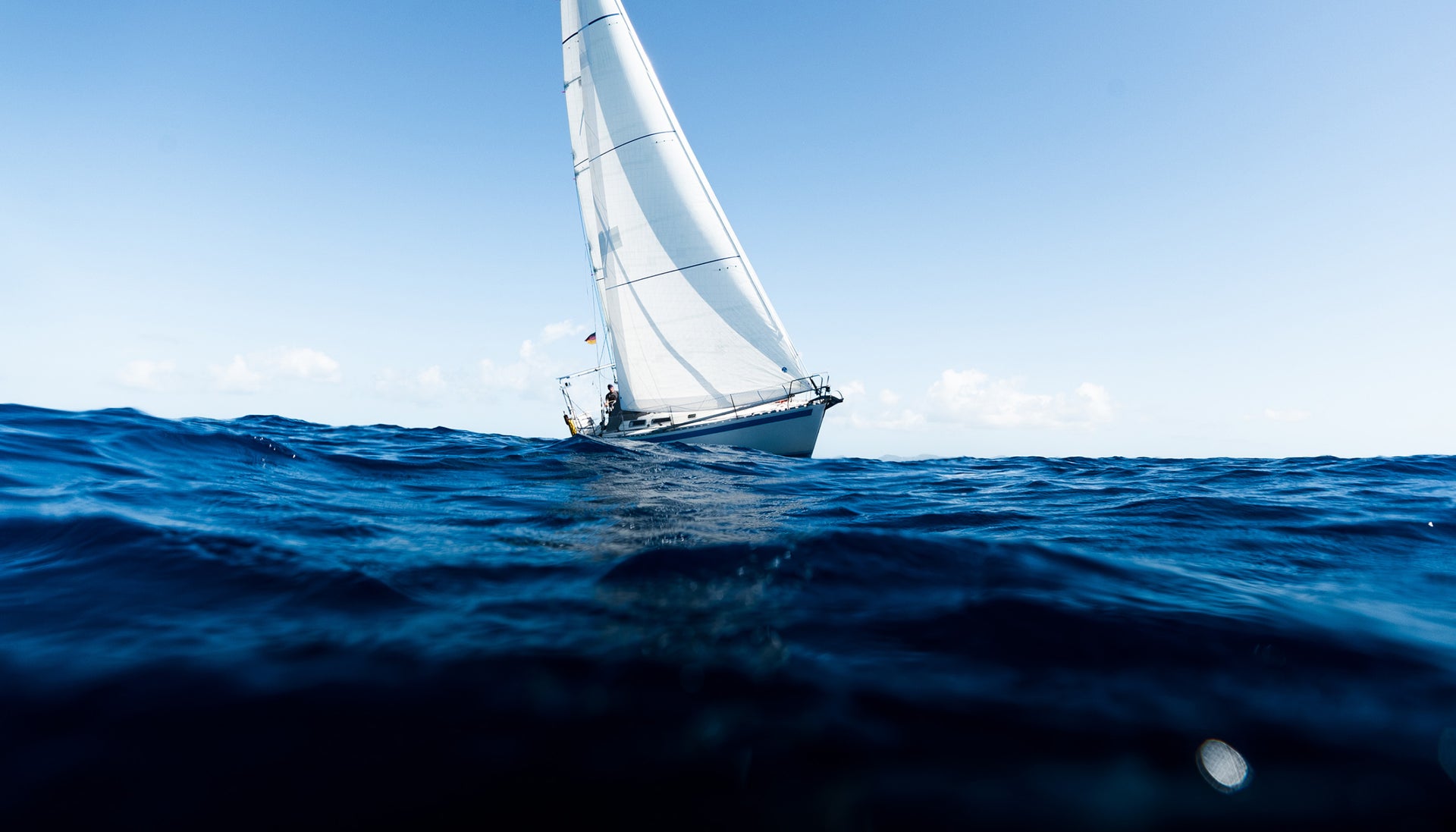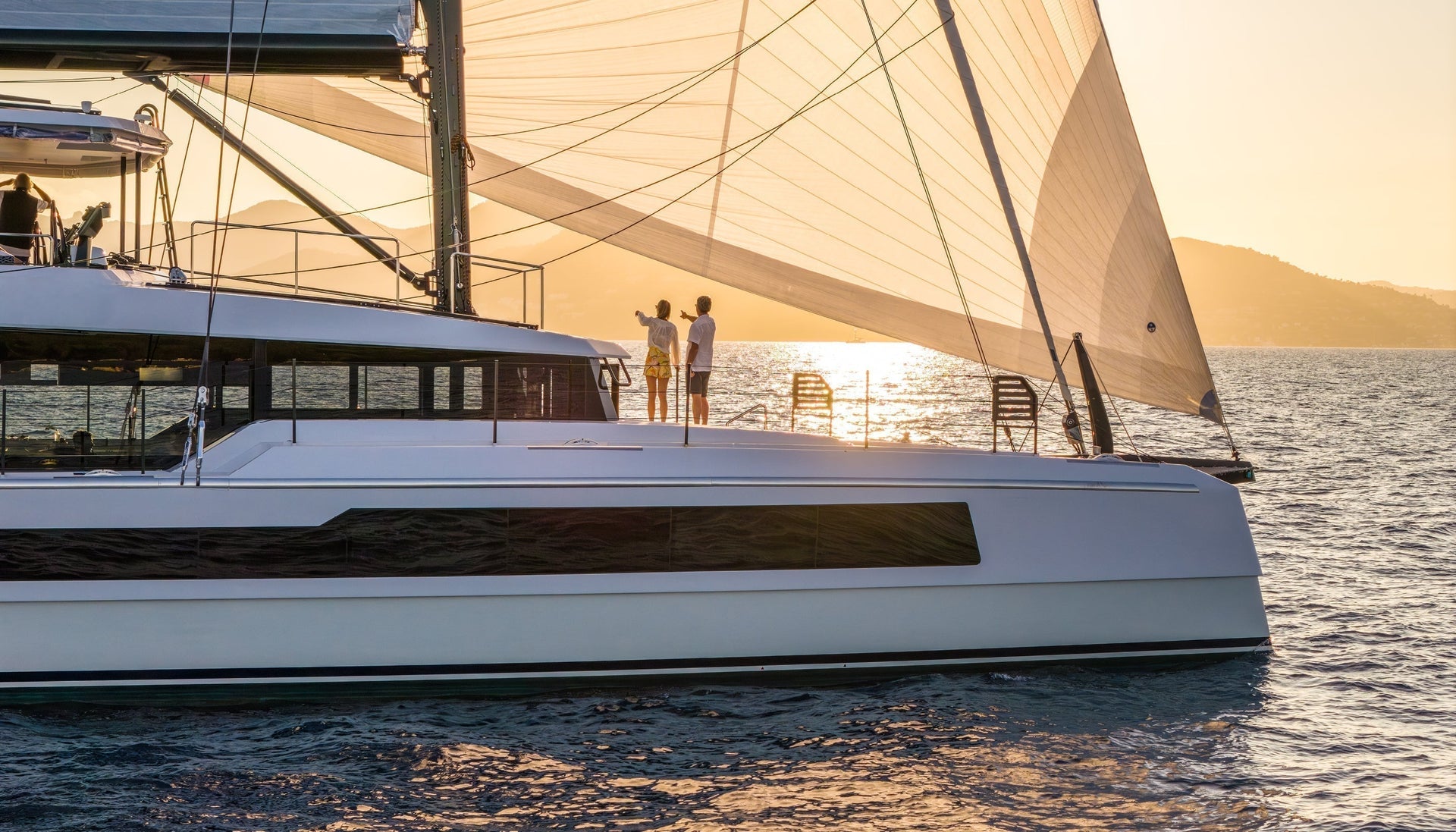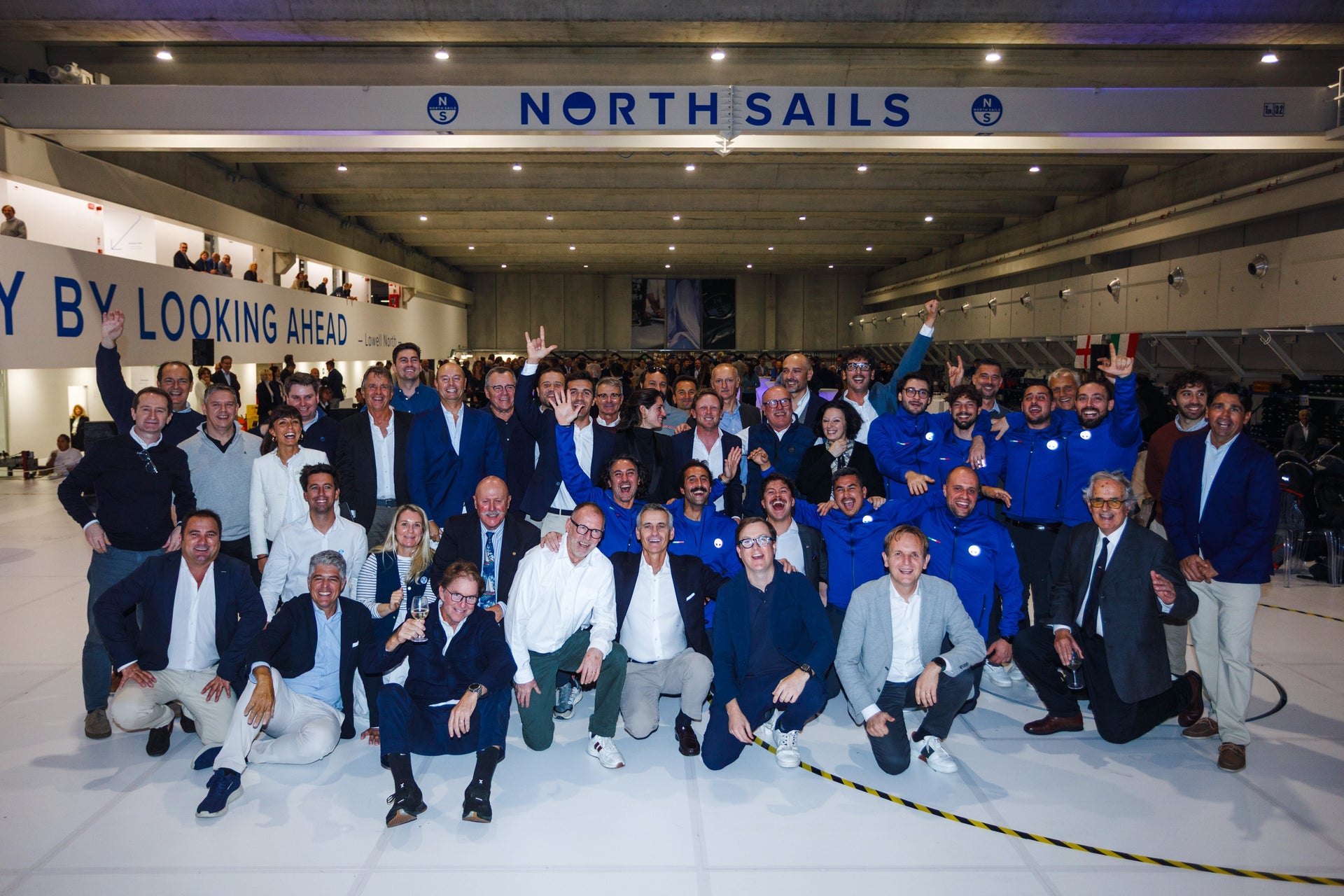LESSONS LEARNED FROM ROUNDING FIRST
LESSONS LEARNED FROM ROUNDING FIRST
Mike Marshall Explains Two Mental Traits That Will Help You Stay Ahead Of The Fleet
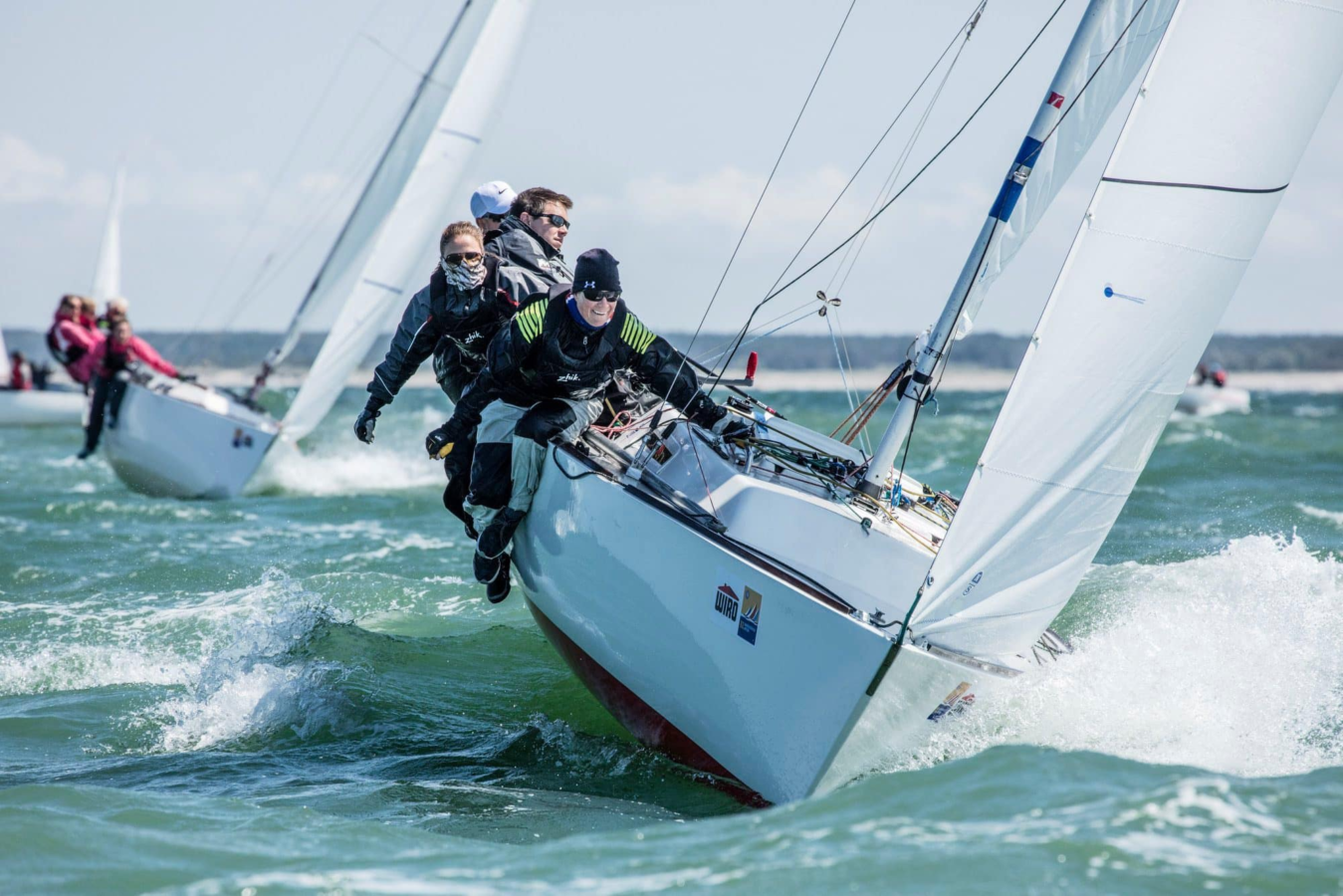
Three years after winning the 2016 J/22 Worlds, I signed on as a trimmer for the 2019 World Championship. I knew crewing would be a fresh challenge, and I was excited to help further raise the game on Raised J, owned by John Koppernaes, a team I’d sailed with in 2017.
This year’s Worlds were in Warnemunde, Germany, and our preparation strayed far from the original plan; all our practice days were blown out, so the practice race was basically our first outing—on an unproven, bottom-painted, charter boat.
What a surprise, then, to find ourselves rounding the first mark in… first.
That evening, I talked through our best approach to the regatta. “We’ve got great boat speed,” I said. “Now we just have to believe in ourselves, and know that we deserve to win.”
Sure enough, the next day we rounded the top mark in first once again—but were soon passed by the eventual regatta winners. Without being on the wrong side of a shift, what happened? Looking back in time a bit, Raised J had a tough event in the light and shifty conditions at the 2018 Worlds, and we all tend to set our future expectations by our most recent results. So this year, as soon as we rounded that first mark ahead of 30 other J/22s, the energy and excitement onboard climbed way too high. “Wow! We’re winning a race! At the World Championship!”
What we should’ve been telling ourselves instead was to keep calm, sail well, and stay in the lead—that we deserved to be there.
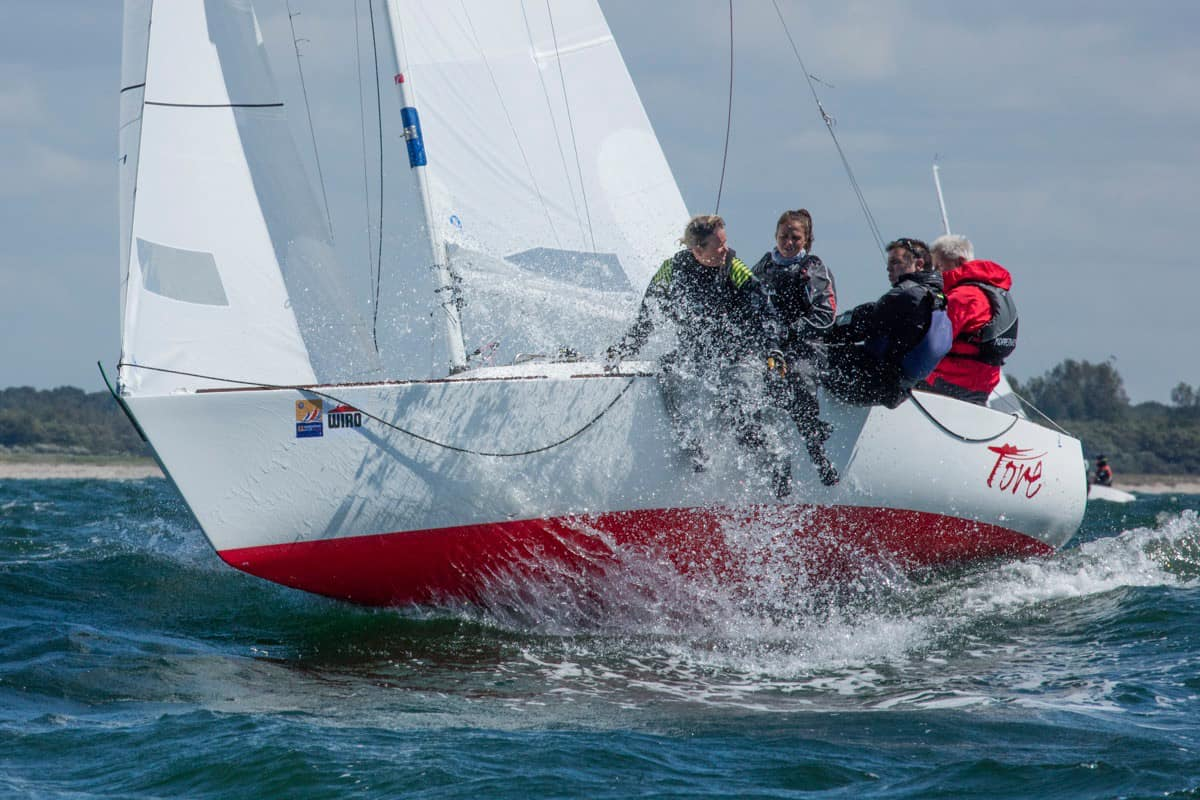
If turning a great start into a mediocre result sounds all too familiar, here are two traits to work on before your next big regatta.
Trait #1: Confidence
Confidence is the biggest mental asset a team can bring to the race course. Confidence in your starting ability gives you an edge over the boats around you. Confidence in your boat handling makes it possible to react more quickly to other boats’ mistakes. If you lack confidence, you may not even recognize another boat’s mistake and capitalize on it, because you’ll be too busy questioning your own abilities to recognize the errors of others—especially if it’s a top rival.
Confidence also leads to more rational decisions. If you are sure of your boat speed, you’ll be able to look past the bad shift you’re in or the bad waves you’ve just encountered. You’ll think to yourself, we’re fast, and everyone else also hits unfavorable shifts and waves. We just have to deal with these factors better than they do. Without this basic belief in your own abilities, a single wave can cause you to dramatically change the way you’re sailing the boat, making you even slower. Sure of your own skills, you’ll have fewer doubts and more definitive decision-making, which will actually make it easier to race well.
Trait #2: Learn From Mistakes
Another essential mental asset is identifying and admitting your mistakes. As cliché as it sounds, admitting that you’ve made a mistake is the first step toward moving past it. Analyze what you’ve done wrong, and have a plan to make sure you don’t make that same error again. Everyone makes mistakes, but your top competitors work hard to only make each mistake once.
Putting It All Together
Rounding first at the first mark in a World Championship proved we had equal skills and speed with the top contenders. The only thing we lacked was confidence in our own abilities. Instead of wondering how we got there, we should’ve focused on perfecting the rest of the race. Instead of getting excited, as if this great rounding was largely due to luck, we should’ve concentrated on minimizing mistakes—and learning from the ones we did make.
Sailboat racing is unique in many ways, but its mental side is the same as other sports. If you listen to top athletes around the world, you can hear in their voices the knowledge that they deserve to be at the top—as well as the humility that comes from working extremely hard to get there. We all need to keep learning, but we also need to develop the mental skills to stay on top after a great first beat.
